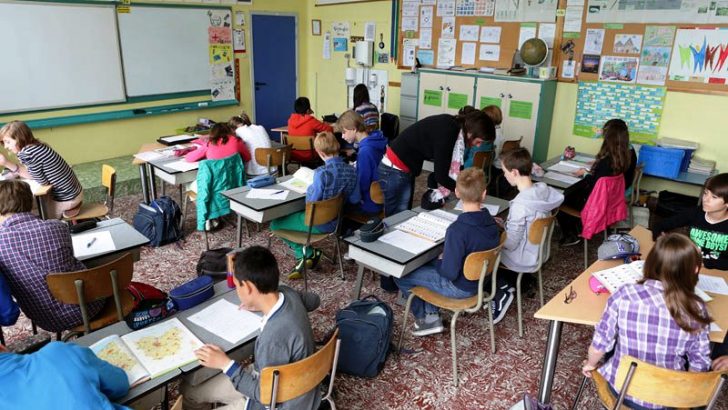‘Catholic’ has to mean more than a sign over the school door, writes Bairbre Cahill
Timidity, a lack of clarity and confidence, fragmentation, consciousness of a damaged brand. These were just some of the challenges articulated by a group of school principals, teachers, members of Boards of Management and local clergy at a recent conference in Letterkenny. ‘Catholic schools – opportunities and challenges in a pluralist society’ was the title of the conference at which Dr Daire Keogh from DCU was the keynote speaker.
Dr Keogh urged participants to challenge media perceptions of what Catholic schools are. Education is not a functional or mechanical process but the work of inspiration and formation.
The relationship between the teacher and pupil is essential. As Catholics, we are called to believe in and share the good news of Jesus Christ and to co-operate with God’s vision of how the world can be. So, for Catholic schools, education is about transformation of the individual and society.
Forum
The café style set up created a forum for conversation. Participants explored the strengths and weaknesses of Catholic ethos within their schools and then the opportunities and challenges presented by the political, cultural and media context within which we live. Conversations were strikingly open and honest.
The opportunity to dialogue, to be energised and challenged by the vision and commitment of each other was greatly valued.
The feedback highlighted many issues. Catholic ethos is hugely dependent on the commitment and loving generosity of our teachers. Consequently, there is a need to nurture our teachers, to help them grow in faith and take ownership of their experience of God, so that they can inspire and nurture the children in their care.
Catholic ethos is more than a mission statement or the presence of religious imagery in school classrooms.
Participants identified the culture within the school, how the liturgical calendar shapes the life of the school, prayer, the capacity for a faith-based understanding and celebration of school life, that each person is created in the image and likeness of God.
These elements underpin the hospitality and openness of the school not just to Catholic families, but to the rich diversity of children who make up our school communities.
Catholic schools have long been the dominant influence in the Irish education system. The danger is that we have become complacent. We have not asked ourselves those vital questions about who we are and what our purpose is.
As a result, we have left ourselves now in a vulnerable position struggling to articulate what a Catholic ethos looks like and feels like in real life.
Participants noted that reality has also shifted within the Catholic school. Many families send their children to a Catholic school and expect them to receive the sacraments despite the fact that the family has little engagement with or commitment to the Faith.
Challenges
It can no longer be taken for granted that all teachers – or indeed principals – believe or practise their faith. This clearly adds to the challenges of living out a vibrant Catholic ethos in a school.
Being Catholic has to mean more than words on a sign over the school door. Schools however cannot take on the responsibility for the faith development of the whole family.
There was a clear call for parishes to find new ways to help families grow in faith. Moreover, parishes need to become more involved in sacramental preparation programmes so that this vital part of our children’s faith development comes to be seen as family, school and parish truly working together.
Perhaps the greatest challenge was the suggestion that we need to engage positively and creatively with the Government’s process of divestment.
Choice is a positive thing both for families who do not want a Catholic education for their children and for some teachers.
Greater choice offers Catholic schools the opportunity to be more authentically Catholic.
Some participants felt that the theory works but their anxiety was for the security of jobs in their own schools. Somehow, we need to find a way of opening up this conversation.
There was a concerted call from participants to have confidence, to engage in these vital conversations within the whole school community, to redefine our brand and to celebrate it.
Authentic view
We need to find our voice and engage with the media to promote a more honest and authentic view of what a Catholic school is and what it offers to society.
From the buzz and energy in the room it was clear to me as the facilitator that there is great passion and commitment in schools to being a place of encounter with Christ, a place shaped by gospel values.
Teachers and principals spoke about how they often feel they are struggling alone, constantly battling the negative messages perpetuated by the media. The priests present could identify with that experience.
All were energised by the sense of solidarity, the shared vision and the realisation that so many good initiatives growing and celebrating faith are happening across the schools in the area on a daily basis.
Clearly more needs to be done to build this network.
Indeed it was suggested that with so many Catholic patrons across Ireland we need to work together, find our voice and engage the media in a positive and consistent way.


 Bairbre Cahill
Bairbre Cahill
